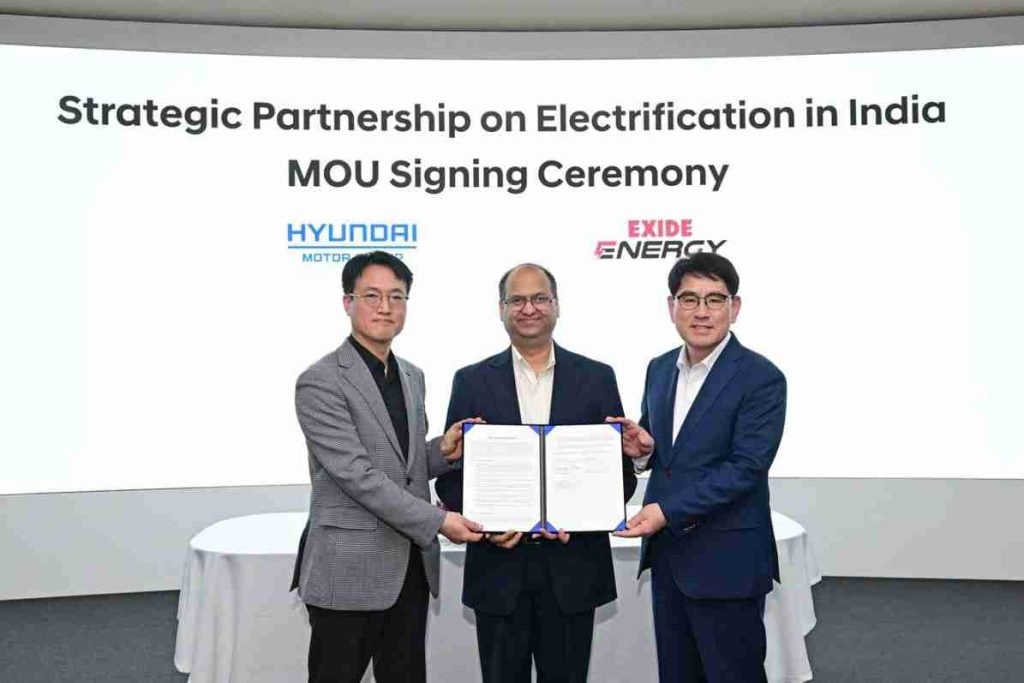Hyundai Motor and Kia signed a MOU (Memorandum of Understanding) for strategic cooperation with Exide Energy, a leading Indian battery maker, to localize their EV battery production. Both the companies, Hyundai and KIA, are focusing on lithium-iron-phosphate (LFP) battery pack manufacturing for electric vehicles.
There are generally two types of lithium-based batteries used in Indian electric vehicles: they are LFP (lithium-iron-phosphate) and NMC (Nickel Manganese Cobalt). LFP batteries offer longer life cycles, reliability, cost-effectiveness, and safety. NMC, on the other hand, has a higher energy density, meaning more energy inside a smaller form factor. However, NMC batteries have a shorter life span, charge cycle, and poor thermal stability compared to LFP.

Today, the supply of EV batteries is entirely dependent on imports from China. Not only India, European and American automakers also buy most of the batteries from China.
India is a beneficial market for all EV manufacturers as the government is committed to reducing the country’s carbon footprint. Moreover, the country’s rapid growth is attracting global investors and Brands. So, various companies want to become leading brands in India’s emerging EV market.
EV Battery Pack Technology is Important
To keep the electric vehicle prices competitive in the Indian market. Hyundai Motors and KIA have worked on sourcing a critical and costly component of the EV locally, which is the EV’s lithium-ion battery pack. The EV battery pack is a high-value and sophisticated part. Localization of EV battery packs will ensure availability and also help reduce costs.
Furthermore, choosing Exide Energy for the partnership will definitely not diminish the expectations of both Hyundai and KIA. Exide is a leading lead-acid battery supplier in India and has over 75 years of experience and market leadership in lead-acid batteries. However, working on LFP (lithium-iron-phosphate) batteries will require substantial effort.
EV manufacturing ecosystem
The Indian government is focusing on local manufacturing of crucial products to reduce imports from China. Heavy import duty has been imposed on the import of goods which can be easily manufactured in India. To build a world-class electric vehicle manufacturing ecosystem, it is must to have crucial parts should be made in India.
